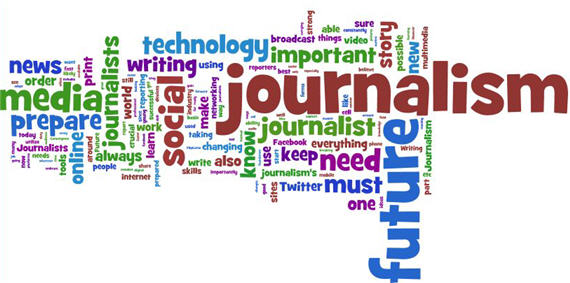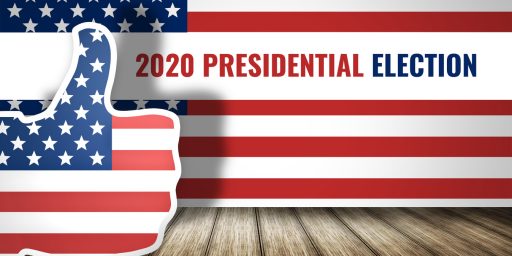NPR The Future Of News?
Craig Newmark thinks NPR's membership model will overtake advertising-supported news over the next decade.
Craig Newmark seems to think so:
“I have a feeling that membership models and philanthrophy models will be stronger than advertising-supported models, people will be willing to pay for news they can trust.”
[…]
“News organizations that are successful are the one that are going to be restoring the traditional values like fact-checking.” He said “The Daily Show” on Comedy Central is more faithful to the traditional model of journalism than any other show. “I’m joking, but I’m not really joking.”
I like NPR as much as the next guy but I can’t see this model catching on. Like it’s Corporation for Public Broadcasting cousin, PBS, it had first mover advantage and the good fortune to be sustained mostly by taxpayer dollars during its early decades.
It’s simply too expensive to launch a news enterprise to credibly compete with the thousands already in existence. And, aside from the public stations and a handful of niche outlets that provide insider information to those with deep pockets or the ability to expense their subscriptions, nobody has demonstrated the ability to get people to pay for branded news. Those who have tried subscription-based sites, such as Slate and Salon, have failed and moved on to advertising.
Will enough people tire of the stream of consciousness model of reporting that 24/7/365 cable and Internet news has wrought to change that? I suppose it’s conceivable. But my bet is that “free” will trump good.






While we’re on the subject of NPR I’d like to put in a plug for its coverage of the economy for the last couple of years. It began with a series done by the program This American Life. That was followed with a regular feature called Planet Money. Some of the best reporting on the economy going on is being done there.
The daily reporting on Market Place is good for keeping up to date. And then of course the reporting on Morning Edition, All things Considered, Weekend Edition are all top notch.
This American Life is one of my favorite programs on NPR. It can sucker punch you right where you live and leave you laughing at the irony of life or crying at the tragedy of it.
I’ll bet the house on the over at 2020
Actually I think there’s some truth in this at least conceptually. Of course you’re always going to have a lot of people who buy newspapers, watch tv, visit blogs to get their opinions validated but there are also a lot of people who want the media to do some serious reporting. This explains why The Economist alone among serious political/business/financial mags has increased it’s circulation. Whether this desire is ever going to be sufficient to fuel an intelligent media segment is more of an open question particularly since the net now provides so many sources for cross checking. By and large if you are a “respectable” journalist you’d better have your facts straight before opinionating in any important public venue because a host of well informed people are going to rip you apart if you don’t. Ultimately what is going to happen on the web is what happens in most areas of human endeavor…consolidation.
NPR’s bias is at least as obvious as any advertizing supported news cast. In fact,the people who produce NPR programming are able to spew their bias and still be supported at gunpoint with taxdollars.
Overall it comes to down to viewers, so the “everything is a crisis” approach will continue to attract and mesmerize audiences to the delite of advertizers.
Veracity be damned, It’s voracity that counts,just look at the fear tactics used by the advertizers themselves!
” first mover advantage and the good fortune to be sustained mostly by taxpayer dollars during its early decades.”
True, but this is not germane to your argument because there are thousands of similar organizations who have also had a such a ‘first mover’ advantage. We call “newspapers,” and the upfront cost of building there newsrooms and investigative teams was paid decades ago by the advertising model. If a fraction of these can transform to the NPR financial model, and then use the Internet for (nearly) free distribution, then the “first mover” problem can be set aside.
Floyd: You make a good observation that complements Craig Newmark’s stance: membership models and philanthropy models for news & analysis, advertising model for info-tainment.
The first mover advantage I attribute to NPR is simply that they had decades to establish their reputation and build loyalty with their listeners. I can’t think of another media outlet that comes close.
If New York Times or Washington Post, both great, great papers with long histories, decided to stop taking advertising and start holding pledge drives, I’d be shocked if they were able to get anything like what NPR gets in donations. And NPR operates, I’d imagine, on a much smaller overhead.
If PBS and NPR are such “great” entities how come they’re still on the government teat?
Government funded media–now playing: “Stalin’s Greatest Hits.”
John425, I think you may be living in the past. Here in Chicago, at least, virtually all of our major public radio station’s revenues are derived from subscriber dues, private donations, and fees received for programming produced here that’s used by other public radio stations. While I realize that Chicago’s being essentially self-supporting is at one extreme of the spectrum, I believe that being more or less self-supporting is pretty typical of big city public radio stations.
Most of the “government teat” goes to rural stations. Have you ever listened to a rural public radio station? My experience, at least, is that they’re primarily classical music stations. More “Beethoven’s Greatest Hits” than “Stalin’s Greatest Hits”.
“More “Beethoven’s Greatest Hits” than “Stalin’s Greatest Hits”.”
Somehow I don’t think John425 is very familiar with Beethoven’s late quartets.
Actually, I’m a Rachmaninoff fan but baroque appeals to me also.
Point is–government-funded media is government-funded media. Abhorrent anyway you slice it. What would you think if the NYT or WaPo received government monies?